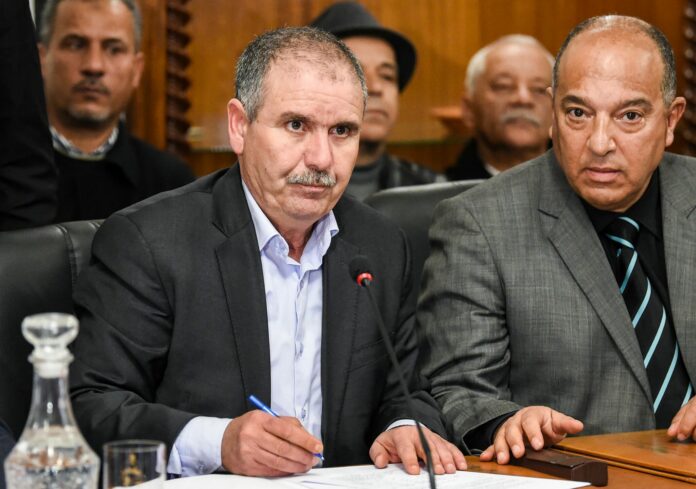Now things seem clearer than before and it is Kaïs Saïed himself who confirms it. During his last night outing that led him to his favorite corner of Avenue Habib Bourguiba, the President of the Republic set the record straight by declaring that he respects the Constitution, but that there are always ways to modify some texts according to the aspirations of the people.
For Saïed, the future orientations are taking shape a little more and it seems obvious that he will not freeze the current Constitution and that he intends to rely on some articles to get rid of others.
And if, on the side of Carthage, we mention the need to take into consideration the will of the people, essentially the citizens who expressed their satisfaction and attachment to what happened on July 25, 2021, it is all civil society, with its main living forces, that is concerned.
An interesting roadmap
And it is in this context that the UGTT follows the news with great interest and does not want to be satisfied with a simple role of extra.
Thus, the Trade Union Centre has just communicated a whole roadmap that it intends to propose to the President of the Republic to accelerate the pace of the promised reforms, particularly at the political level.
This roadmap, analyzed by observers and political experts, is interesting in more ways than one because it proposes solutions to end this political crisis (Constitution, early legislative elections, appointment of the new head of government and formation of a new government team…) and it touches on almost all the burning files that must be opened as soon as possible, such as the transfer of the Court of Auditors’ report on the results of the 2019 presidential and legislative elections to the competent judicial authorities and the establishment of adequate mechanisms to implement the decisions that will emanate from it.
Time for accounts
This roadmap also calls for taking adequate measures to clean up the justice sector and, above all, to evaluate the performance of constitutional bodies that have not been satisfactory, such as the Independent High Authority for Elections, the Anti-Corruption Authority and, above all, the Truth and Dignity Commission.
The UGTT, which already proposed the organization of a National Dialogue a few months ago, does not want to passively attend everything that is happening and does not want to give gifts to any of the parties concerned by the current political crisis, which must end very quickly and leave the way for positive reforms that will help ensure the stability of the country, to get rid of the chaos caused by those who have governed during the last decade and allow Tunisia to embark on the hoped-for recovery, especially in the economic field.
The UGTT has communicated the content of its roadmap without mentioning whether it has been officially presented to the President of the Republic, which prepares the ground for positive consultations to find, as soon as possible, the see of salvation and especially to accompany Kaïs Saïed and avoid possible slippages.
Parties surprised and destabilized
And if, on the side of civil society, we do not cross our arms and we continue to push towards the implementation of the necessary measures and likely to pull the country forward, we can only deplore the reactions of the political parties who no longer seem to know on which foot to dance since July 25.
Thus, we had to follow the ball of Ennahda, the big loser of this new situation, which is trying to survive and limit the damage in a confused way in a new impulse of flight forward.
It is the same for the left, already in difficulty since the last legislative elections. Hamma Hammami’s latest appearance at a meeting in Paris is perplexing. The one who insisted on completely erasing the 1959 Constitution when he did not see the Islamists coming to take power, and the one who refused to collaborate with Nida Tounes in 2014 to form a majority in Parliament, thus allowing Ennahda to take advantage of the opportunity and return to power, now likes to attack Kaïs Saïed in the manner of Ennahda, that is to say by evoking a military coup and a return to dictatorship.
For the other political parties, with the exception of the PDL which remains faithful to its principles, although they are debatable, disarray seems to invade them and they seem to be in a position of expectation that they risk paying dearly in the next elections.
This means that the sequence of events promises to be decisive for the survival of these parties, surprised and distraught by a July 25 that they did not see coming and which totally distorted their calculations and questioned their interests.
Rifi-JDD








